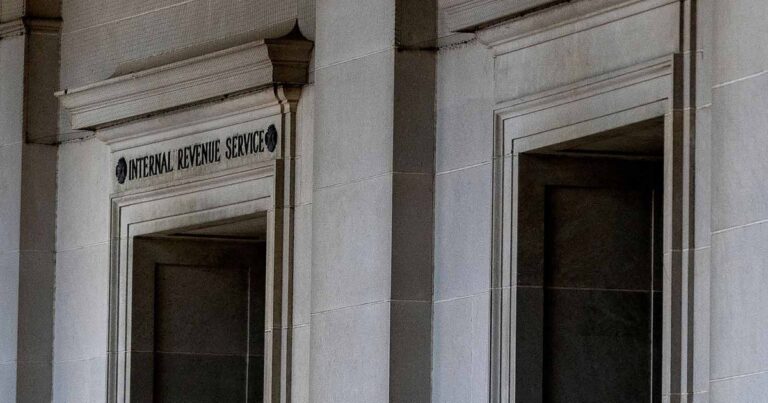Some 20,000 Internal Revenue Service employees have accepted the Trump administration’s second deferred resignation program offer and are awaiting follow-up from the agency. The program is part of the administration’s plan to shrink the federal workforce across various agencies and essentially undo the hiring done at the IRS under Congress’s Inflation Reduction Act.
Thousands of probationary employees were already laid off earlier this year. The IRS ended fiscal 2024 with approximately 100,000 employees, but that number will change drastically.
Citing sources familiar with the matter, various news outlets, including CNBC and CNN, report that nearly 20% of all employees have expressed interest in the DRP offer this time, compared with the roughly 5,000 that opted to accept the first offer back in January. Under the program, employees will receive full pay and benefits through Sept. 30 if they resign. Newsweek reports that employees involved in the 2025 tax season weren’t permitted to accept the offer until after the taxpayer filing deadline of April 15.
According to Bloomberg Tax, those over 40 who have requested to take the second offer still have 45 days to decide, using it as an insurance policy in case they receive a layoff notice.
An internal memo obtained by Federal News Network confirms fears of layoffs aren’t unfounded. The IRS reported that its biweekly Reduction in Force notices began going out last week. The workforce reduction will be completed in two phases, with an evaluation phase after the first. There will be larger cuts in some offices than others, with about 75% of workers at the Office of Civil Rights and Compliance reportedly expected to be laid off. The memo indicates that the taxpayer services and compliance division will also take a big hit. The IRS is expected to downsize to some 60,000 to 70,000 employees once the efforts are completed.
Higher-up executives didn’t shy away from the DRP offer, with acting IRS Commissioner Melanie Krause and Chief Information Officer Rajiv Uppal among those who accepted the second offer.
What’s at Stake for Taxpayers?
Concerns are mounting that the reduced IRS workforce will affect taxpayers, reigniting past qualms about tax return filing delays and longer waits for customer support. Recent efforts to reel in tax avoidance and evasion will also potentially go out the window.
High-net-worth taxpayers with complex estates may also face difficulty obtaining IRS guidance, for example, private letter rulings, on estate planning strategies. However, Patrick D. Owens, a shareholder in the Chicago office at Buchalter, says he doesn’t foresee a large impact on HNW clients. “Most HNW clients have fairly sophisticated tax experts advising them and maintain good compliance. The impact will likely be felt in the increase in time incurred by the professionals attempting to resolve issues in compliance and audits,” he added.





